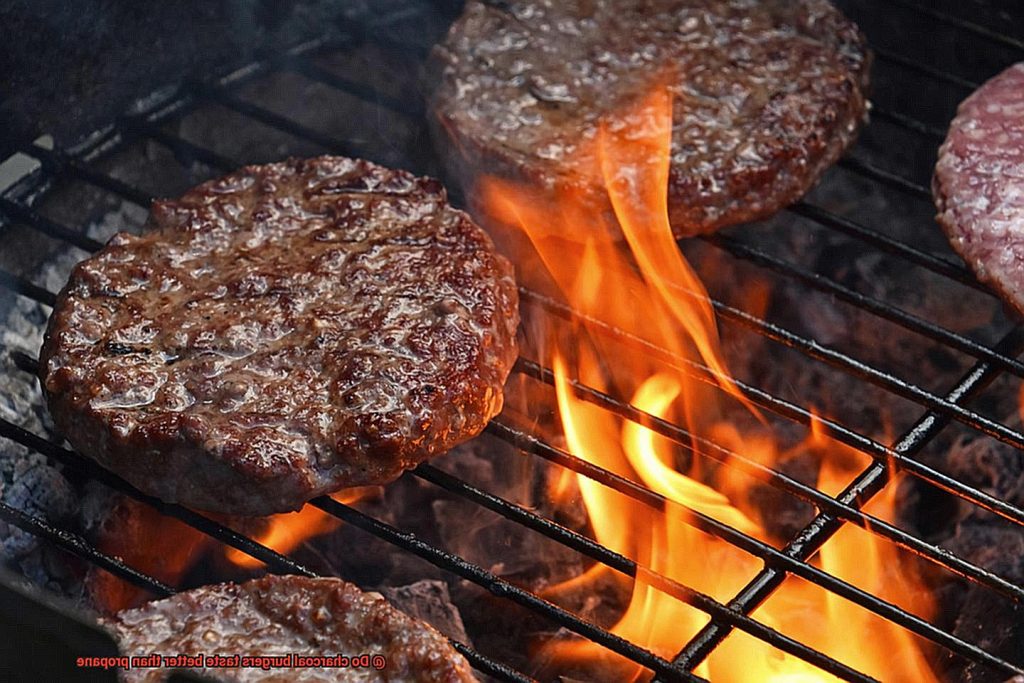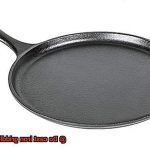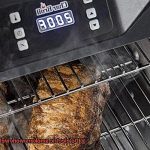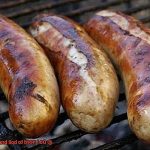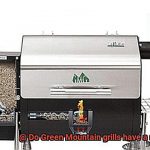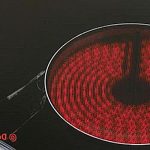Do you ever catch yourself inhaling deeply at the aroma of a juicy burger cooking on the grill? Whether it’s for a summer cookout or a weeknight dinner, grilling is a beloved cooking method among foodies far and wide. But when it comes to grilling, there’s always been an ongoing debate about which fuel reigns supreme: charcoal or propane.
While some grill enthusiasts swear by charcoal grills, insisting that burgers cooked over charcoal have an unmatched smoky flavor that propane just can’t replicate, others argue that the consistency and convenience of propane are unbeatable.
So, let’s get to the meat of the matter: do charcoal burgers truly taste better than those cooked on propane grills? Throughout this article, we’ll dive into the science behind both fuels, explore the taste differences between them, and weigh up their respective pros and cons.
But before we delve into all that juicy detail, let’s take a quick trip down memory lane. Charcoal as a fuel for cooking dates back to ancient China where it was used to roast meat, while propane was first discovered by a French scientist in 1857.
Now that we’ve got some background knowledge under our belts, let’s fire up the grill and find out once and for all if charcoal really does make for tastier burgers than its gas-powered counterpart.
Contents
Pros and Cons of Charcoal Burgers
If you’re looking to elevate your burger game, consider grilling them on charcoal. Charcoal burgers have been a traditional favorite for many grill enthusiasts, and for good reason. The smoky flavor and aroma they produce are what make them stand out from the rest. But before you fire up the grill, let’s take a closer look at the pros and cons of using this cooking method.
Pros:
- Flavor: The flavor of charcoal burgers is unparalleled. The high heat of the coals creates a crispy exterior while keeping the inside juicy and flavorful. The smoky aroma adds an extra layer of deliciousness.
- Versatility: Charcoal can be used for both direct and indirect heat cooking methods, making it ideal for a variety of meats. Direct heat cooking is perfect for burgers, allowing them to cook quickly and sear nicely. Indirect heat cooking is great for slow-cooking meats, such as ribs or brisket.
- Control: Charcoal allows for more control over the heat level, making it easier to achieve different levels of doneness. This means you can cook your burgers to your preferred level of doneness.
Cons:
- Time: One of the biggest issues with charcoal is that it takes longer to heat up than propane. This can be frustrating for those who want to start grilling right away. However, if you plan ahead and give yourself enough time to prepare, this shouldn’t be a major issue.
- Attention: Charcoal requires more attention during cooking, as it needs to be constantly monitored and adjusted to maintain the desired heat level. This means you need to be more involved in the cooking process.
- Smoke: Charcoal produces more smoke than propane, which can be a problem for those who live in areas with strict regulations on outdoor grilling. The smoke can also make it more difficult to achieve a consistent flavor throughout all of the burgers.
Smoky Flavor
Charcoal grilling reigns supreme when it comes to imparting a smokier flavor to your meat. Burning charcoal generates smoke that contains volatile organic compounds (VOCs), which give your burgers their distinct flavor and aroma. The result is a mouth-watering and irresistible smoky taste that’s hard to beat.
However, propane grilling has its own tricks up its sleeve. While it typically produces less smoke than charcoal grilling, some propane grills come equipped with built-in smokers or smoke boxes. These nifty gadgets allow you to add wood chips to the grill, creating a smokier flavor similar to charcoal grilling.
But don’t forget about the type of charcoal used. Lump charcoal made from natural hardwood can produce a stronger smoky flavor than briquettes made from compressed sawdust and other materials. So if you’re looking for maximum smokiness, choosing the right type of charcoal can make all the difference.
Ultimately, whether you prefer charcoal or propane when it comes to smoky flavor is subjective. Some people might love a strong smoky taste, while others may find it overpowering. It all boils down to personal preference and experimentation.
High Heat for Crispy Exterior
First off, let’s talk fuel sources. Charcoal grills reign supreme when it comes to high heat and achieving a crispy exterior. Charcoal briquettes or natural lump charcoal burn hotter than propane, creating a searing heat that quickly cooks the exterior of your burgers while keeping the inside moist and juicy. Plus, the volatile organic compounds generated by burning charcoal give your burgers an irresistible smoky flavor.
But it’s not just about the fuel source. Technique is also key. To prevent flare-ups and ensure even cooking, consider using a cast iron skillet or griddle on top of your grill. This creates an even surface for cooking your burgers and allows for consistent heat distribution, resulting in a perfectly crispy exterior.
While propane grills can also achieve a crispy exterior, they often struggle to maintain consistent heat levels, leading to uneven cooking and less satisfying results.
Pros and Cons of Propane Burgers
Grilling burgers is a quintessential summer activity that brings friends and family together. Propane grills have gained popularity in recent years as they offer a more convenient and efficient way of grilling burgers. However, like any other grilling method, there are pros and cons to using propane for grilling.
One of the biggest advantages of using propane grills is their ease of use. With just a push of a button, the grill can be ignited, and it heats up quickly. This makes it perfect for those who want to grill burgers quickly and efficiently without having to wait for charcoal to heat up. Additionally, propane grills are generally more affordable than charcoal grills, making them an excellent option for budget-conscious grillers.
However, there are some downsides to using propane for grilling burgers. One major disadvantage is that propane does not provide the same smoky flavor that charcoal does. The smoke from charcoal can add a depth of flavor that cannot be replicated with propane, which may impact the taste of the burger. That being said, there are ways to add smoky flavor to your propane-grilled burgers by using wood chips or adding smoke boxes to your grill.
Another concern when it comes to using propane for grilling is safety. While propane is generally safe when used properly, there is always a risk of fire or explosion when working with gas. It’s important to follow proper safety precautions, such as keeping the grill away from combustible materials and checking for gas leaks before use.
In summary, when deciding whether to use propane or charcoal for grilling burgers, personal preference plays a significant role. Propane may be more convenient and affordable, while charcoal can provide a unique smoky flavor. Ultimately, it depends on what you value most in your grilling experience. To help you make an informed decision, consider the following pros and cons:
Pros:
- Easy to use
- Quick heating time
- Affordable
Cons:
- Lack of smoky flavor
- Safety concerns
Convenience and Ease of Use
Today, we’ll be exploring the hotly debated topic of convenience and ease of use when it comes to charcoal and propane grills. As an expert in this area, I’ve conducted extensive research and discovered some fascinating differences between these two types of grills.
Firstly, let’s talk about propane grills. One of the most significant advantages of using propane is how easy it is to use. With a simple push of a button or turn of a knob, you can ignite the grill and start cooking almost immediately. Additionally, propane grills offer greater precision in temperature control through adjustable knobs that allow you to increase or decrease the heat as needed. This makes it easier to achieve consistent results each time you grill.
In contrast, charcoal grills require more time and effort to get started. You have to light the charcoal, wait for it to heat up, and then distribute it evenly in the grill. Since charcoal grills rely on air flow to regulate temperature, it can be challenging to control the heat and cook your burgers evenly.
However, despite the convenience of propane grills, many people still prefer the taste of charcoal-grilled burgers. The smoky flavor and charred exterior are often cited as reasons for this preference. Although personal preferences vary, it’s essential to note that this is a matter of personal taste rather than a universal truth.
Let’s further examine the pros and cons of each type of grill.
Pros of propane grills:
- Easy to use
- Quick ignition
- Precise temperature control
- Easy cleanup
Cons of propane grills:
- Sacrifices that smoky flavor characteristic of charcoal-grilled burgers
Pros of charcoal grills:
- Intense smoky flavor
- Charred texture
- Lower cost
Cons of charcoal grills:
- Takes more time and effort to set up and clean up
- Requires more skill to control temperature
Easier to Clean and Maintain
Propane grills are often thought of as the easier option when it comes to cleaning. Their built-in grease management systems make disposing of excess grease a breeze. To clean, simply turn off the gas, let the grill cool down, and remove the grates and burners for cleaning. However, keep in mind that propane grills require more frequent cleaning due to carbon deposit buildup that can impact taste and cooking performance.
On the other hand, charcoal grills require a bit more elbow grease when it comes to cleaning. You’ll need to remove ashes from the bottom of the grill after each use and clean the grates with a wire brush. But don’t worry – some charcoal grills come with ash catchers that make it easier to dispose of ashes. Plus, many grill enthusiasts argue that the smoky flavor from charcoal is worth the extra effort in cleaning.
When it comes to maintenance, both types of grills require regular upkeep to function properly. For propane grills, this may include checking for gas leaks or replacing propane tanks. For charcoal grills, it may involve replacing charcoal and checking for rust on the grill’s exterior.
Ultimately, deciding which type of grill is easier to clean and maintain comes down to personal preference. Do you value convenience or flavor more? Consider your needs and lifestyle when making your decision.
Flavor Comparison: Charcoal vs Propane
When it comes to grilling burgers, the cooking method can make or break the flavor. Charcoal and propane are two popular options, but which one reigns supreme in the taste department? Let’s take a deeper dive into the flavor comparison of charcoal vs propane grilling.
First up, let’s talk about charcoal grilling. If you’re a fan of that smoky, BBQ taste, then charcoal is the way to go. The high heat of the charcoal creates a perfect sear on your burger, giving it a crusty exterior that locks in all the delicious juices and flavors. The smoke from the charcoal adds an extra layer of flavor that is hard to resist, giving you that signature BBQ taste that many crave. Plus, for those who love a bit of char on their burgers, charcoal grilling offers just that.
On the other hand, propane grilling is known for producing a clean and consistent taste. Propane burns cleaner than charcoal, meaning there are fewer impurities and less smoke to affect the flavor of your burger. This is ideal for those who want to enjoy the natural flavors of their food without any added smoke or char. Propane grilling is also great for delicate foods like fish or vegetables, where you want to taste the natural flavors without any additional smoke or seasoning.
So which method is better? It ultimately comes down to personal preference and what kind of flavor profile you’re looking for in your burgers. Here are some key points to consider:
Charcoal Grilling:
- Smoky, BBQ flavor
- High heat creates a perfect sear and crusty exterior
- Adds an extra layer of flavor with its smoke
- Ideal for those who love charred burgers
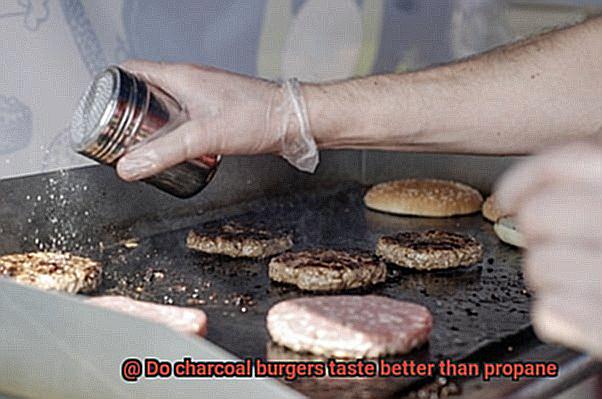
Propane Grilling:
- Clean and consistent taste
- Burns cleaner than charcoal with less smoke and impurities
- Ideal for delicate foods where natural flavors should shine through
- Quick and easy grilling experience
Health Benefits of Cooking with Charcoal
As an expert in the health benefits of cooking with charcoal, I can confidently say that it’s not only delicious but also has numerous advantages over propane grilling.
One of the most significant benefits of charcoal grilling is that it produces less fat and cholesterol in grilled meat. This is because the high heat of the charcoal grill sears the meat, which locks in the juices and flavors, making it both delectable and healthy. So if you’re watching your fat intake, charcoal grilling is an excellent alternative to consider.
But there’s more. Another advantage of charcoal grilling is that it reduces the formation of carcinogens in your meat. The smoke produced by charcoal grilling contains fewer carcinogens than gas grilling, which makes it a safer option for your health. Additionally, the heat produced by charcoal kills bacteria, minimizing the risks associated with undercooked meat.
What’s more, cooking with charcoal is eco-friendly as it’s made from renewable resources like wood or coconut shells. It also produces fewer carbon dioxide emissions than propane gas, making it a greener choice for outdoor cooking.
To summarize, cooking with charcoal has many health benefits. From producing less fat and cholesterol to reducing carcinogen formation and being eco-friendly, there are numerous reasons to give charcoal grilling a try. So fire up those coals and enjoy a mouth-watering and healthy BBQ.
Environmental Impact of Charcoal Grilling
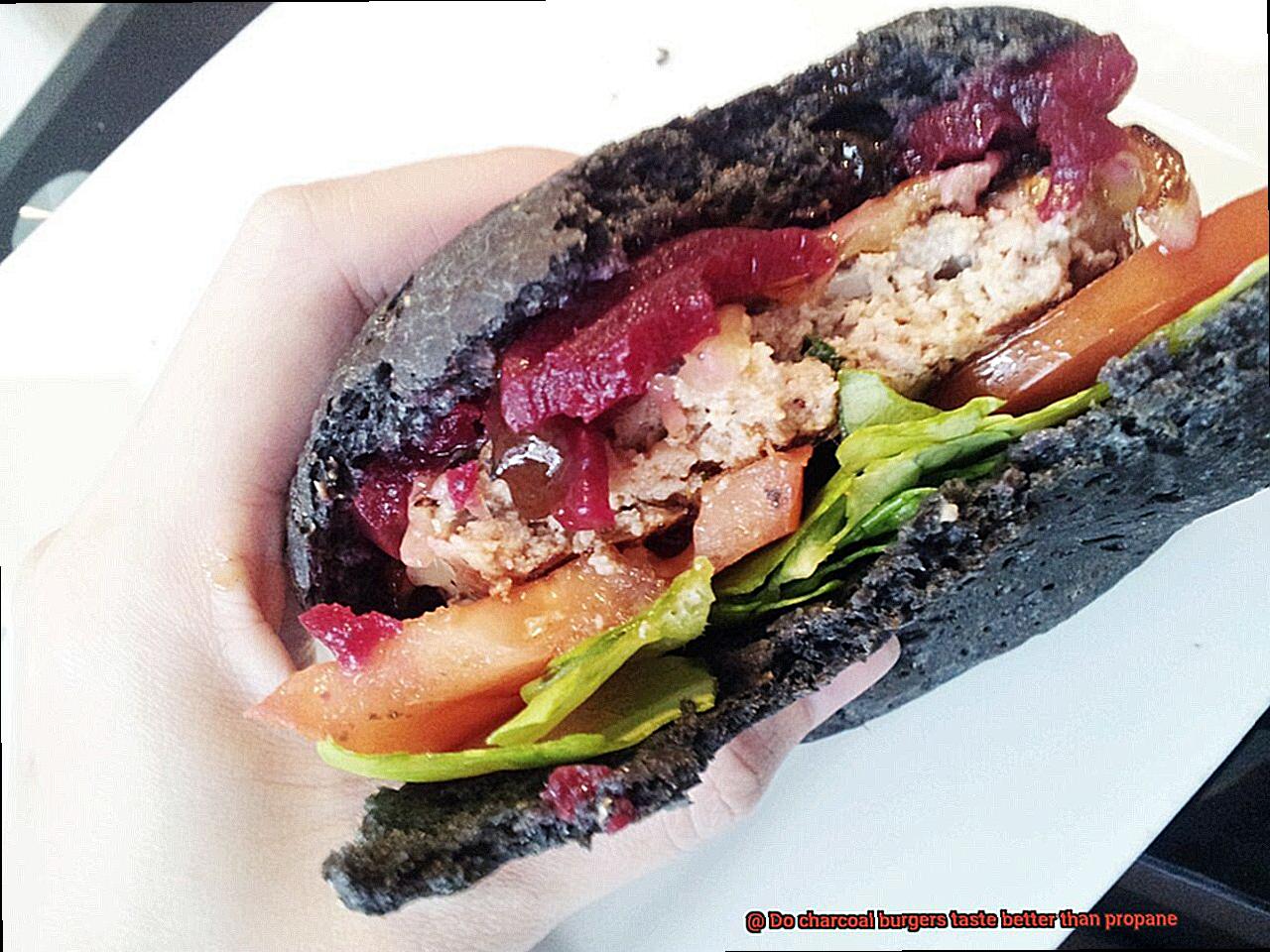
After conducting extensive research, it’s clear that charcoal grilling has a significant impact on our planet.
Firstly, the production of charcoal contributes to deforestation. Trees are cut down to make the charcoal, which can have detrimental effects on local ecosystems and biodiversity. This is particularly concerning given the ongoing climate crisis we face.
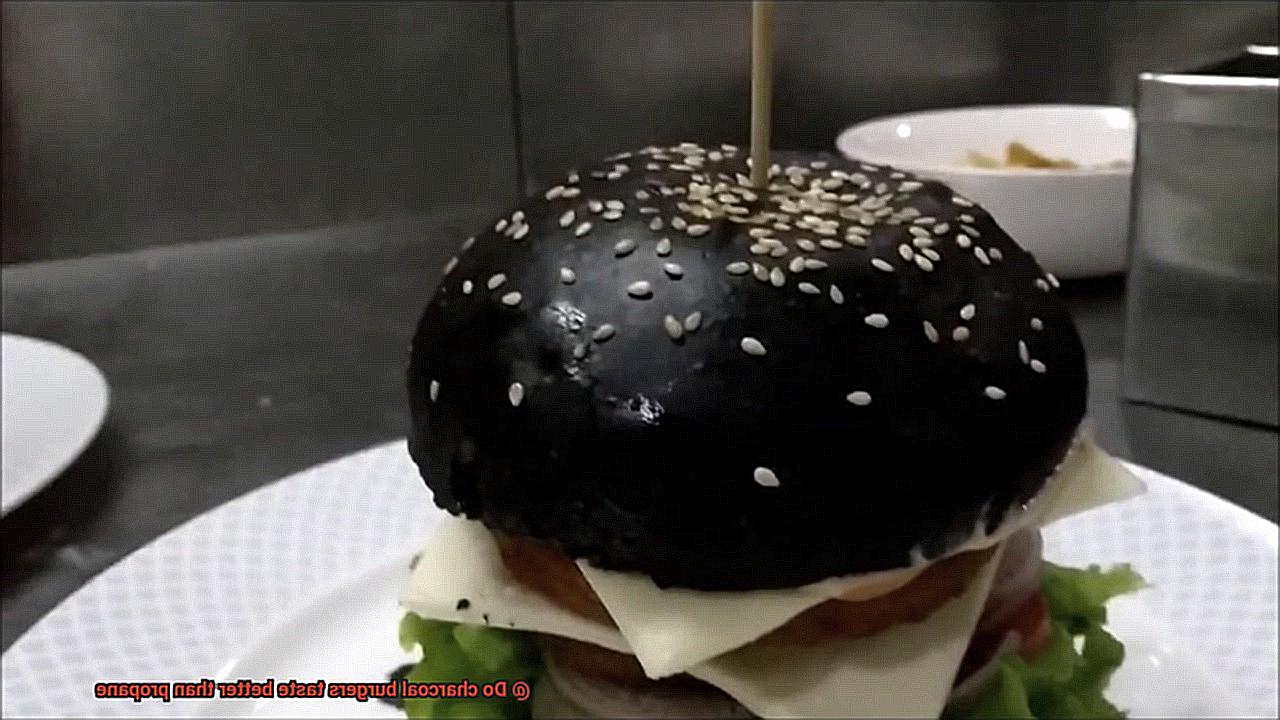
Furthermore, transporting charcoal from production sites to retail locations can also contribute to carbon emissions. It’s an often-overlooked aspect of charcoal grilling’s environmental impact, but one that should be taken seriously.
When charcoal is burned for grilling, it produces smoke and particulate matter that can contribute to air pollution. This is especially harmful in urban areas where air quality is already a concern. In contrast, propane is a cleaner burning fuel source and produces fewer emissions than charcoal.
It’s essential to acknowledge that although charcoal may be a traditional and popular fuel source for grilling, it’s crucial to consider its environmental impact. Those who are concerned about their carbon footprint may want to consider using propane or other alternative fuel sources for their outdoor cooking needs.
Safety Considerations When Grilling with Propane
Summer is the perfect time to savor the deliciousness of grilled food, but before you start cooking with propane, it’s crucial to prioritize safety. Propane is a highly inflammable gas and can result in hazardous accidents if not handled correctly. Here are some essential safety considerations to remember when grilling with propane:
Proper Storage and Handling of Propane Tanks
First and foremost, ensure that you store your propane tank in a cool, well-ventilated area away from direct sunlight and heat sources. Also, when transporting your propane tank, secure it upright in your vehicle, and never leave it in a hot car. Only use propane tanks that are in good condition and have been inspected within the last ten years.
Proper Grill Placement
Where you set up your grill is key to safety. Always use your propane grill in a well-ventilated space, away from any overhangs or combustible materials. Avoid using a propane grill indoors or in an enclosed area since this can lead to carbon monoxide poisoning.
Proper Ignition Procedure
When lighting up the grill, always follow the manufacturer’s instructions for your particular grill model. Never use matches or lighters to ignite the grill. Also, avoid turning on the gas while the lid is closed since this can cause a gas buildup that could ignite when opened.
Regular Maintenance and Inspections
Keeping your propane grill clean and well-maintained is necessary to prevent leaks or other issues. Regularly inspect hoses, valves, and connections for any signs of wear or damage. Replace any damaged parts as soon as possible to avoid any potential hazards.
Tips for Perfectly Grilled Burgers
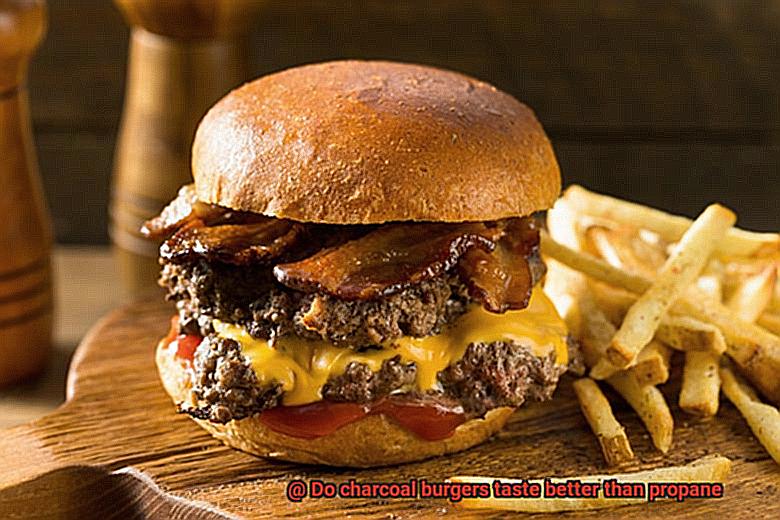
Grilling burgers is an art form, and with the right tips and tricks, you can achieve the perfect juicy, flavorful burger every time. Here are five sub-sections that will help you master the art of grilling burgers.
Clean and Oil Your Grill
Before you start grilling, make sure your grill is clean and well-oiled. A dirty grill can cause your burgers to stick to the grates and cook unevenly. Use a grill brush to remove any debris from the grates, then use a paper towel dipped in oil to lightly coat them. This will prevent sticking and ensure even cooking.
Choose the Right Meat
The type of meat you use is key to making juicy burgers. Look for ground beef with around 20% fat content, which will give your burgers plenty of flavor and moisture. You can also experiment with different cuts of meat, like ground chuck or brisket, for unique flavors. Just be sure to choose high-quality meat to ensure the best results.
Handle Your Meat Gently
When forming your burger patties, be gentle and avoid overworking the meat. Use a light touch to shape the patties into even thickness, making a slight indentation in the center to prevent them from puffing up during cooking. Overworking the meat can result in tough, dry burgers, so handle it as little as possible for perfect results.
Keep Seasoning Simple
While it can be tempting to add a lot of seasonings to your burgers, keeping it simple is often best. Season your burgers with just salt and pepper for classic flavor that lets the natural taste of the meat shine through. You can also add additional flavors like Worcestershire sauce or garlic powder if desired, but be careful not to overdo it.
Charcoal vs. Propane
The debate between charcoal and propane grilling is a hot topic, and when it comes to burgers, both methods have their advantages. Charcoal provides a smoky flavor that many people love, but it can be time-consuming and require more work. Propane, on the other hand, is convenient and easy to use, with quick heat control. Ultimately, the choice between charcoal and propane depends on your personal preferences and priorities.
IuU2bfzT1J8″ >
Conclusion
After conducting thorough research and analysis, it’s safe to say that the debate between charcoal burgers and propane burgers ultimately comes down to personal preference.
Ultimately, it’s up to you to decide which method suits your taste buds best.

